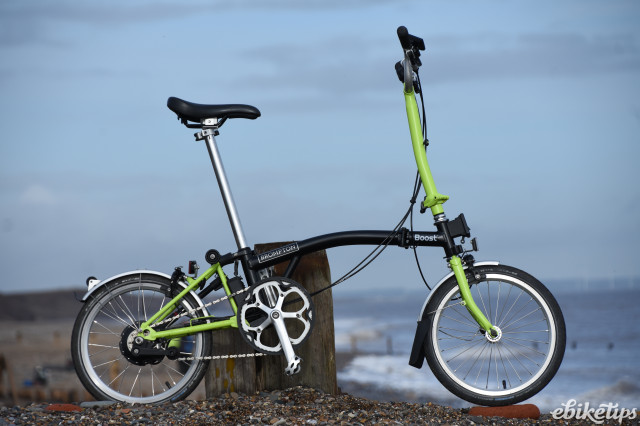We've already looked at the novel and apparently sustainably designed repairable batteries from Bordeaux-based Gouach. The firm now finds itself pitted against industry body CONEBI with regards to proposed leglisation which would demand all light electric vehicle batteries be more easily repairable.
Gouach claim that their batteries can be repaired in under 10 minutes, avoiding the need to recycle an entire battery when the majority of the cells (and probably all or most of the other components) are working just fine. Failure of just one or two cells in a battery pack that uses multiple cells often leads to the entire battery being recycled.
New Euro-legislation on batteries (including e-bike batteries) has been in the pipeline for a while and CONEBI (Confederation of the European Bicycle Industry) - generally regarded as the collective voice of the Euro bike and e-bike industry - has a track record of advising against repair of e-batteries, preferring to advocated recycling of the whole battery.
Of course, their different perspectives on how to deal with old or faulty e-bike batteries puts Gouach and CONEBI at odds with each other. Bike Europe reports Gouach warning of a “David vs Goliath” battle in the quest to develop a repairable e-bike battery.
The new EU-wide legislation has been the subject of debate between various arms of the EU government since back in December 2020 but the end of last year saw a provisional agreement on the matter between the European Parliament and Council. When it finally comes into force it will have wide-ranging implications as it will cover all light electric vehicles (LEVs), not just e-bikes.
Will repairable batteries be the new Euro-standard?
Gouach certainly hope the answer to the above question is yes. They say not only is their battery repairable but that it features Bluetooth and Wi-Fi connectivity for remote diagnosis. They also claim it has a carbon footprint up to four times less than a typical e-bike battery.
The Bike Europe article goes into some detail on the proposed new EU battery legislation. Apparently Article 11 states that “from 42 months after entry into force of the Regulation, any natural or legal person that places on the market products incorporating LMT batteries (LMT = Light Means of Transport and includes e-bike batteries) shall ensure that those batteries, as well as individual battery cells included in the battery pack, are readily removable and replaceable by an independent professional at any time during the lifetime of the product.”
In other words e-bike and other LEV batteries should have relatively easily removable cells. The huge majority of e-bike batteries don't, but Gouach's do. Gouach say the legislaton in its current proposed form is getting significant pushback from CONEBI, an industry body dominated by 'larger players'.
CONEBI for its part quotes safety concerns, comparing the fact that batteries for electric cars can use similar assembly methods to e-bike batteries and that replaceable cells for much larger car batteries are not (and will not) be allowed on safety grounds.
With the legislation on LMT (ie e-bike) batteries still needing implementation and clarification by EU member countries at a national level, it seems just how the 'readily replaceable cells' requirement translates into reality is still to be figured out. Indeed, the removability and replaceability requirements will only apply to portable and LTM batteries that are marketed in the EU from around the second half of 2026. Despite a victory on paper, David is still very much battling Goliath.
If you are simply wondering what to do when your current e-bike battery reaches the end of its life read our guide - Old worn-out e-bike batteries: repair, recycle, refurbish or replace?









